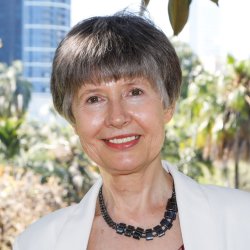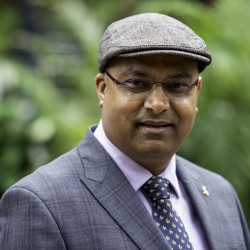Designing low-cost sensing technologies for particles and gases to control the indoor–outdoor interface and minimise indoor airborne pollution
This project will focus on designing low-cost sensing technologies for particles and gases to control the indoor–outdoor interface and minimise indoor airborne pollution.
Start date
1 October 2022Duration
3.5 yearsApplication deadline
Funding source
University of Surrey DTPFunding information
The studentship funding covers academic fees for UK students. You will receive a standard stipend of £16,062 per annum to cover your living expenses. Additional funding will be made available to present your work at a conference and for project-related costs.
About
Airborne pollutants flow continuously between indoors and outdoors. Outward flow – of volatile organic compounds (VOCs), human-emitted CO2, and pathogens for example – maintains clean air indoors; but VOCs and other domestic emissions may affect outdoor air quality, perhaps raising ozone (O3) and secondary organic-aerosol concentrations. Inward flow may compromise indoor air quality directly, bringing in pollutants like particulate matter (PM), UFPs (<0.1 µm), black carbon, nitrogen dioxide (NO2), and O3, or indirectly with oxidants like OH or NO3 radicals, and O3 – interacting with indoor materials to generate secondary pollutants such as UFPs and formaldehyde. Of particular concern are pollutants from combustion (urban traffic, bushfire smoke), regional haze, dust re-suspended from surfaces (deserts, mining operations, roadworks), indoor combustion sources, and oxidants such as O3. While energy-transition efforts are slowly reducing pollution from transport, bushfire and dust storms are forecast to increase with climate change. Routine indoor air-pollution measurement is neglected, though there have been some advances in sensing technologies.
Objectives and outcomes
- Identify a minimum pollutant set as proxy for overall exposure to indoor air pollution.
- Design sensing methods and networks for routine quantification of the selected pollutants, indoors and outdoors simultaneously.
- Devise a pollution data interpretation approach to distinguish outdoor versus indoor origin.
Related links
Global Centre for Clean Air Research (GCARE) Facilities at the GCARE’s Air Quality Lab Guildford Living LabEligibility criteria
This project is open to UK candidates (only UK fees covered). GCARE has a multidisciplinary team where researchers from all backgrounds are most welcome. This project will be suitable for a student with a degree in science (atmospheric, physics, chemistry, mathematics, geoscience or material Science), engineering (environmental, civil, mechanical, chemical, computer), or a closely related environmental/physical science discipline. Some experience of physicochemical characterisation of particles and data analysis would be extremely useful.
If English is not the first language, IELTS 6.5 or above (or equivalent) is required, with no sub-test score less than 6.
How to apply
The interested candidates are requested to send their CV directly to Professor Lidia Morawska (l.morawska@surrey.ac.uk) and copy to Professor Prashant Kumar (p.kumar@surrey.ac.uk). Upon confirmation, you are welcome to make a formal application through the Civil and Environmental Engineering PhD programme page.
Studentship FAQs
Read our studentship FAQs to find out more about applying and funding.
Application deadline
Contact details
Professor Lidia Morawska and Professor Prashant Kumar
Email: l.morawska@surrey.ac.uk and (cc P.Kumar@surrey.ac.uk)
Telelphone: +44 (0)7814987638
Research
GCARE is a multidisciplinary centre that was founded and directed by Professor Kumar. Its research is supported through a wide range of UKRI (e.g., NERC, EPSRC, ESRC, Innovate UK), H2020, industrial and international (e.g., FAPESP Brazil, QNRF Qatar) grants. With the mission to realise ‘clean air for all’, GCARE’s Air Quality Lab is well-equipped with a wide range of experimental facilities/equipment (e.g. ENVILUTION® chamber for sensor evaluation; portable PM and gaseous measurement equipment) and large body of research developed in the topic area to support the advertised project.
The group is led by Professor Kumar. Professor Morawska is a Surrey Vice-Chancellor Fellow attached to the GCARE.

Studentships at Surrey
We have a wide range of studentship opportunities available.

